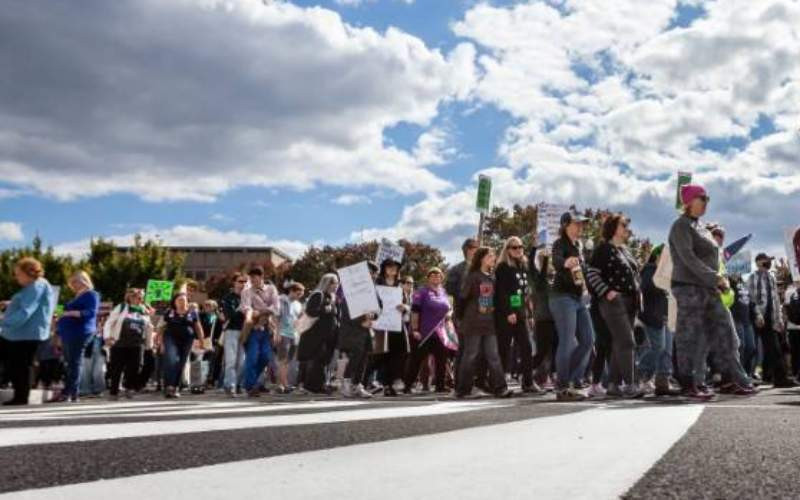By Lucianne Limo
Government statistics show a majority of women occupy low job groups in the Civil Service.
A status report on women indicate that 84 per cent of men take the lion’s share of senior positions, compared to only 16 per cent of women.
The situation is replicated in parastatals where majority of male employees stand at 61 per cent compared to women’s 39 per cent.
While women constitute majority of the population, they still constitute a big work force whose employment is regarded as complimentary rather than essential. The report paints a grim picture of how women work in all areas in the civil service, yet they are consistently under-represented in senior positions.
The report indicates that out of a workforce of 62,756 surveyed in May last year, women constituted 30.9 per cent compared to men who stood at 69.1 per cent of the work force.
The report places blame on the political patronage and cultural attitudes and stereotypes that present women’s roles as that of supporters, rather than actual leaders.
It noted that lack of political will among top-ranking Government officers in appointing women to those positions also contributed to the phenomenon.
The report also identifies tribalism, nepotism and corruption as some of the factors denied female employees their rightful place in the Civil Service.
The situation gets worse as the percentage of women in high cadre grades diminishes as they go up the job group.
Employment trends
At lower cadres of Civil Service, female representation stands at 74 per cent, compared to 26 per cent of males. Most women work in the lower cadre job groups from H and below.
The report says men have it easy in securing jobs and rising to the top compared to women.
This trend indicates employment and promotion of women in the civil services is tilted in favour of men.
Public Service Minister Dalmas Otieno attributed the women under-representation to lack of competitiveness and lack of proper qualifications.
Stay informed. Subscribe to our newsletter
He said women should not expect positions on a silver platter and should instead work hard and attain necessary qualifications.
"Positions in the Civil Service are offered on competitive basis and there are no jobs to be given out simply because you are a woman," Otieno said in a telephone interview.
He added, "Women should get organised, get proper training and be willing to compete to rise up the ladder."
The Kenya National Commission on Human Rights Vice Chairman Hassan Omar, however, disagreed with the minister saying the Kenyan woman is most educated to take over top leadership.
He said Kenya society is patriarchal and until we destroy the notion, it will be difficult for women to enjoy equal opportunities. "We need to shift from cultural beliefs," Omar said.
A survey by Ministry of Gender, Children and Social Development in June 2009, showed 13,980 women held jobs in Job Group H and below compared to 27,437 men. The survey sampled 32 out of 42 ministries and found that 5,094 women were employed in job group J-N while men in similar job group were 14,602.
 The Standard Group Plc is a
multi-media organization with investments in media platforms spanning newspaper
print operations, television, radio broadcasting, digital and online services. The
Standard Group is recognized as a leading multi-media house in Kenya with a key
influence in matters of national and international interest.
The Standard Group Plc is a
multi-media organization with investments in media platforms spanning newspaper
print operations, television, radio broadcasting, digital and online services. The
Standard Group is recognized as a leading multi-media house in Kenya with a key
influence in matters of national and international interest.
 The Standard Group Plc is a
multi-media organization with investments in media platforms spanning newspaper
print operations, television, radio broadcasting, digital and online services. The
Standard Group is recognized as a leading multi-media house in Kenya with a key
influence in matters of national and international interest.
The Standard Group Plc is a
multi-media organization with investments in media platforms spanning newspaper
print operations, television, radio broadcasting, digital and online services. The
Standard Group is recognized as a leading multi-media house in Kenya with a key
influence in matters of national and international interest.








